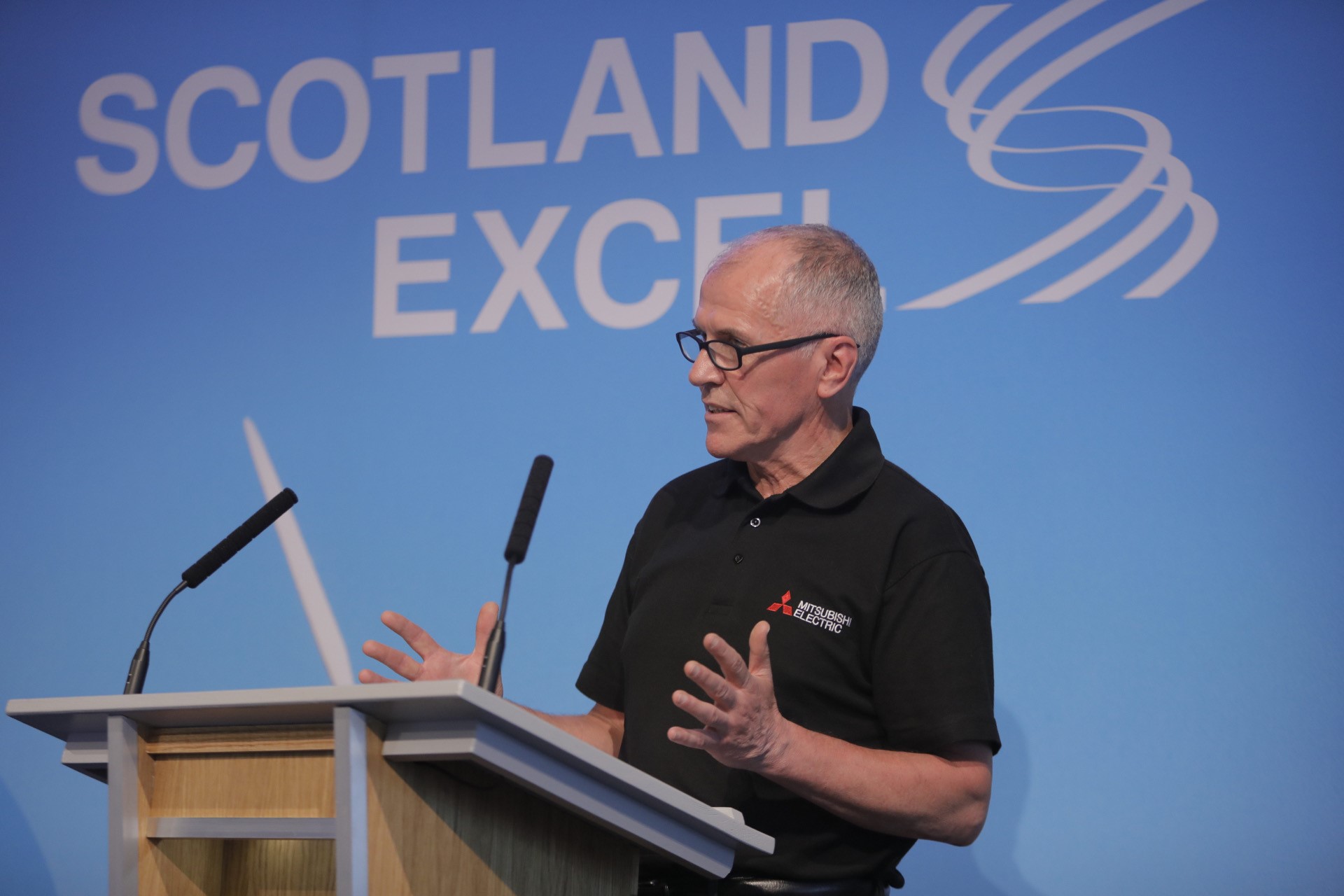Ian Heron: Delivering a net-zero Scotland will be impossible without renewable heating

Ian Heron
As part of Scotland Excel’s ‘Supporting the journey to net zero’ campaign, Ian Heron - residential specification manager, Renewable Heating at Mitsubishi Electric - writes about the need for an urgent change in the way we heat our buildings.
In June 2019, the UK became the first major economy to pass net zero emissions into law. The target means that all greenhouse gas emissions must be brought to zero by 2050, representing a significant milestone in the UK’s efforts in tackling global warming. Scotland has even more ambitious goals of reaching net zero by 2045 and achieving a 75% reduction by 2030 – just eight years away.
These goals are a step in the right direction, but they must be supported by immediate and widespread change across the whole economy to achieve them. With around 40% of all carbon emissions coming from heat production, investing more in renewable heating options, like heat pumps, is one effective way to help deliver on this commitment.
Setting the scene
The UK has a target of installing 600,000 heat pumps per year by 2028 and in Scotland specifically, the target is 200,000 by the late 2020s.
In comparison, only 35,000 heat pumps were installed in the UK in 2020, and around 4,000 homes in Scotland installed low or no emissions heating last year.
To boost uptake and reach these targets, there is now legislation in place both in the UK and Scotland. For example, the Heat and Buildings Strategy published in 2021 outlines a firm commitment to the use of heat pumps, and the New Build Heat Standard, which will come into force in Scotland in 2024, will prohibit the use of direct emissions from heating systems in any new buildings.
With high targets and legislation in place to promote heat pumps, it’s important that both consumers and installers understand their benefits, and how they can be used most effectively.
The benefits of heat pumps
Heat pumps offer huge carbon savings of around 65% compared to a gas boiler, and as the electricity grid continues to decarbonise, this is projected to rise to around 95% by 2050. This grid cleanse is one of the reasons that heat pumps are supported by both the Scottish Government and in Westminster – and as a result, there are even grants in place to help bring the cost of installation down further.
For example, the Scottish Government’s MCS certification fund can help to pay for 75% of heat pump certification fees up to £1,000. As a result, it’s easier than ever for installers and heating engineers to be able to install the much-needed systems.
In new build settings in particular, heat pumps are already cost-comparable to boilers – with the added benefit that installing one now will help save on the cost of refurbishing once gas boilers are banned in years to come.
Which heat pump is right?
Heat pumps can be installed in most properties in Scotland, and the main requirements to make them viable are simply to have decent insulation and glazing, and enough space for the system to be fitted.
Air source heat pumps are the best solution for individual new build and well-insulated homes, as they only require a small space, and operate quietly. For sites where more space is available, a ground source heat pump could be the best solution. The outside unit runs very efficiently and can operate across multiple homes – in a new build development or social housing, for example – but does require significant outdoor space and a higher upfront cost.
With big sustainability targets in Scotland and the UK more broadly, changing the way we heat homes is vital. With financial support in place to support both installers and homeowners to access heat pumps, and legislation to ensure we continue to move away from gas, we are well positioned to achieve the goal of installing 200,000 heat pumps a year in Scotland in years to come.”
- Ian Heron - residential specification manager, Renewable Heating at Mitsubishi Electric, recently spoke at Scotland Excel’s Energy Efficiency Conference and Expo ‘Building a Net Zero Scotland’ that took place in Edinburgh in May.
More than 200 people from across the built environment and energy efficiency sectors attended the one-day event held to launch the renewal of Scotland Excel’s Energy Efficiency Contractors framework. It brought together leading energy and climate experts to discuss how the public and private sectors can work together to combat the climate emergency and achieve the Scottish Government’s goal of a Net Zero Scotland by 2045.
You can view the films of the presentations and slides of each speaker through Scotland Excel’s website.









